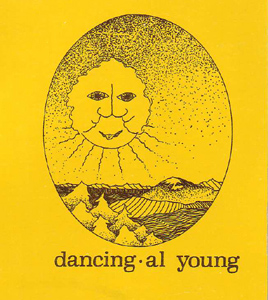
Just Who Is Al Young? An interview with the state's new poet laureate By Sarah Phelan If it's news to you that California has its very own poet laureate, you're not alone. Until recently, the laureates were mostly unknown, appointed for life on the basis of political connections, not poetic capabilities. But in 2000, the state legislature passed a bill to ensure that laureates are appointed from among California poets with national and international reputations. Sadly, Quincy Troupe, the first state poet laureate under this new system, had to resign mere months after being appointed when a mandatory background check uncovered that Troupe had misrepresented himself on his résumé, claiming he had a degree from Grambling University, when in fact he had never graduated. The claim also cost Troupe his teaching post at the University of San Diego, where he was professor of American and Caribbean literature and creative writing. All of which explains why California's newly appointed poet laureate Al Young had to undergo a grueling grilling and wait 3 1/2 months before getting the gig--a call that came in mid-May, while Young was out buying BART tickets (at 66 years old, Young gets the senior discount) at a Berkeley supermarket. Young's grilling included traveling twice to Sacramento, first for an interview with what he calls "the Appointment Committee," then for a 45-minute face-to-face with Gov. Arnold Schwarzenegger, who reportedly quizzed Young extensively about poetry and politics. "He'd memorized a poem of mine called 'Conjugal Visits' [from The Sound of Dreams Remembered: Poems, 1990-2000], whose subtext is prison reform and which is done in the voice of a woman who goes to visit her husband at San Quentin prison once a month," Young recalls. "At one point the woman in the poem says,
'For what it costs the State
"And Schwarzenegger quoted the following lines from the poem." Young continues:
All these Black men crammed up in jail,
They fly in dope and make real sure
Young chuckles at the memory of Arnie reciting that in his Austrian accent. "The governor said, 'You'd think I would hate that, but I love it. Why? Because I follow hip-hop and I, too, am for prison reform.' Then he asked if I was withholding anything that if revealed would prove damaging to the state. I said no, and the governor laughed and said, 'None of us could claim that.'" Recalling how when he told the governor that all poetry is political--"Even when the poet opts to take a position that's not political, that's a political statement in itself"--Arnie's staff rolled their eyes, Young says their reaction convinced him the governor would appoint someone "safer." Happily, Arnie did not, and Young is busy plotting all the things he'll do during his two-year tenure. Required to appear at six major venues (for instance, he'll be the keynote speaker at the Governor's Conference on Women in October that will end with Maya Angelou), he'll also develop a website for poets of all backgrounds and ages, where they can present work and have discussions and webcasts. What isn't required is for him to do "special occasion verse," unlike British poet laureate Andrew Motion, who had to write about the recent royal wedding--a requirement that had The New York Times' Sarah Lyall musing, "How do you solve a problem like 'Camilla'? ... none of the obvious rhymes--vanilla, flotilla, Godzilla--seem appropriate, somehow." Even with "find words that rhyme with Schwarzenegger" scratched from his to-do list, Young says people still ask him why he wanted to be California's poet laureate, a post that pays a modest $10,000 for the entire two-year period. "California has been very good to me, so I'll be giving something back. Many decades ago, I went from the national priority of 'What can I get from this?' to 'What can I give?' It's resulted in the richest experience. I'm not superfamous, or a bestseller, but it's been a steady, ever widening experience that has taken me all over the world." Acknowledging that "thanks in part to modernism, poetry became hermetically sealed in the 20th century, needing a university professor to explain what it meant," and that "some people still think if you can understand a poem, it's not very good," Young believes that "when you have a poetry scene, where only poets are reading, listening and critiquing poetry, well, that's like an echo chamber." That said, he's optimistic about the state of the state's poetry scene. "We're going through these dark critical days, which is when poetry always surfaces. Poetry is the original human language, not the official-speak. Academics sometimes look down their noses at poetry slams, but those events get kids out of the house and saying and writing stuff you won't find in their essays. Kids have a lot to say about what's going on; they are our national treasure," says Young, who recently went to a Juvenile Hall, and met 50 boys and girls who "were hungry for poetry." "The librarians there had got the idea of bringing them books. Before that they just had TV. Those kids were all writing like crazy, trying to work out why they are there." And he likes how today's poets have largely stopped rhyming, use ragged lines and speak in language that people can access, and how many of them circumvent printing presses by typing poems on computers and printing "books" themselves. "When all you have is your body and voice, poetry is the art form that's still there."
California's poet laureate, Al Young, will visit Santa Cruz twice in the near future, first to participate in a Poetry Santa Cruz event and then to perform in collaboration with musicians at Kuumbwa. Stay tuned. |
Copyright © Metro Publishing Inc. Maintained by Boulevards New Media.
For more information about Santa Cruz, visit santacruz.com.
From the May 25-June 1, 2005 issue of Metro Santa Cruz.
![[Metroactive Books]](/books/gifs/books468.gif)